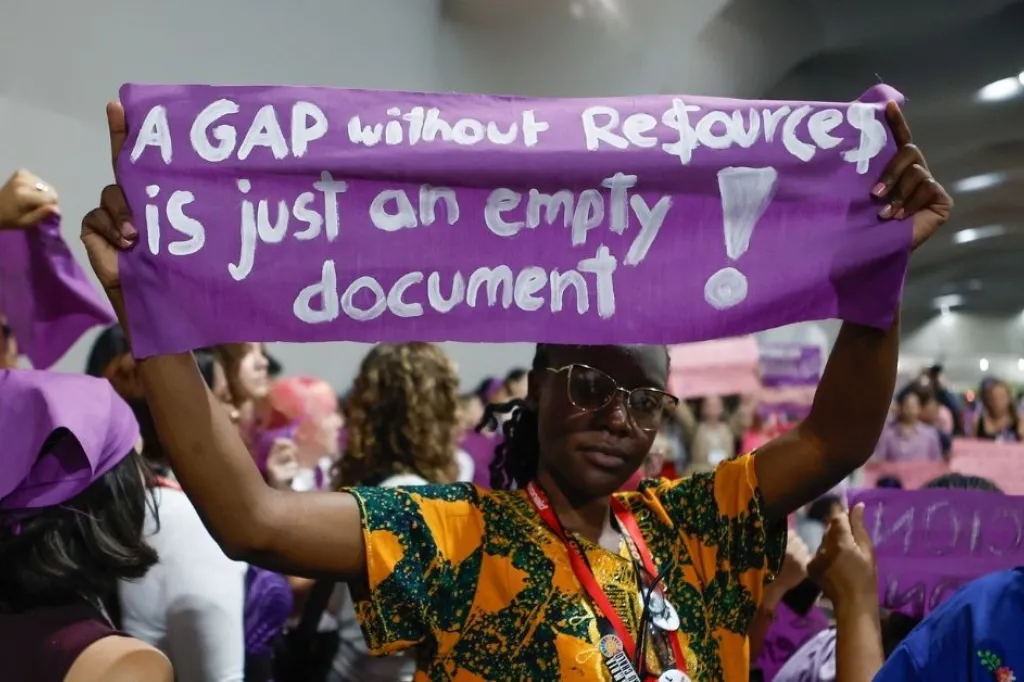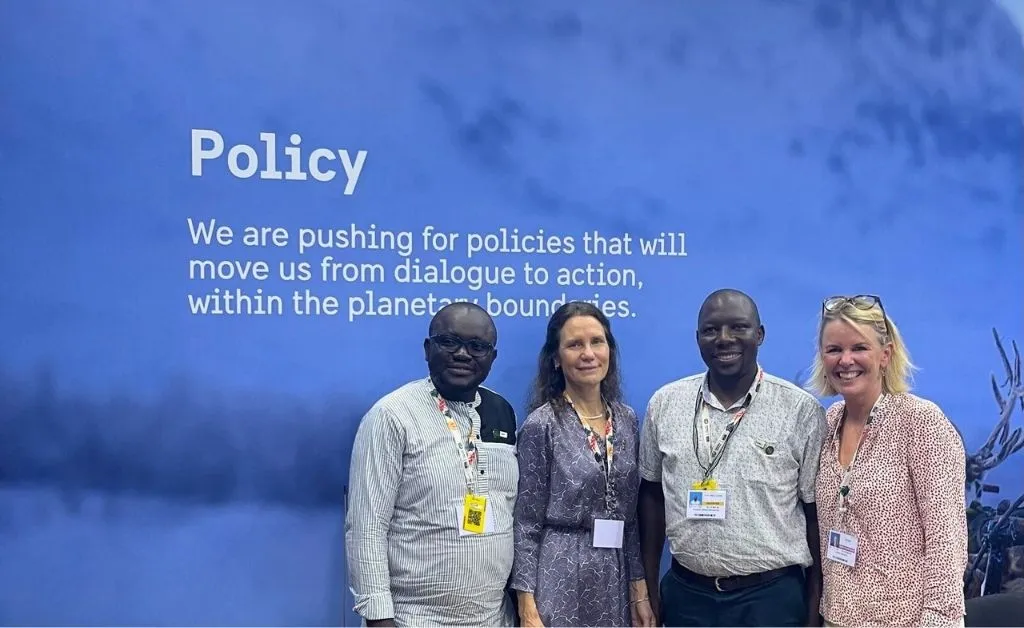ForumCiv at COP30: African voices at the centre of climate justice

ForumCiv and other CSOs are in COP30 to ensure that re-centring climate action around people is worth protecting. This COP30 is turning promises into people-centred progress.
Jackson Obare, Regional Manager for Eastern Africa
Why is ForumCiv at COP30?
ForumCiv’s mission at COP30 is to support and convey the demands of African civil society for climate justice. We are co-leading the coordination of the Africa CSOs Pre-COP30 process, through which a joint position paper has been developed to influence the negotiations.
Our Regional Manager for Eastern Africa, Jackson Obare, and our Environmental and Climate Justice Officer, Michael Nyongesa, are representing the shared message of more than 40 African civil society organisations.
The impacts of climate change fall most heavily on those with the least power. ForumCiv works to ensure that people, especially marginalised groups, have real influence over the decisions that shape their lives. Ensuring civil society voices are heard in climate negotiations is not only a matter of inclusion; it is essential for achieving sustainable and just solutions.
What African civil society is demanding at COP30
African civil society’s message ahead of COP30 is clear. The climate crisis reflects deep-rooted injustices, including historical, economic and structural ones. Tackling it requires measures that not only reduce emissions but also transform systems of power.
1. Climate finance and debt cancellation
African civil society demands new, grant-based climate finance that is separate from Official Development Aid and based on clear commitments to meet the continent’s urgent needs. Funding must be transparent, traceable and reach local communities directly to strengthen adaptation and resilience to climate change.
2. Loss and damage
Africa suffers the most severe impacts of a crisis it has contributed least to. Immediate action is needed to secure fair and sufficient financing for communities to recover and rebuild resilience to climate-related losses and damages.
3. Climate adaptation
Adaptation is a matter of survival. Civil society calls for increased support for climate adaptation, capacity building for local institutions, and community-led initiatives that ensure solutions are grounded in local realities.
4. A just and inclusive energy transition
Africa’s energy transition must be based on human rights. This means ensuring access to energy for all, protecting workers’ rights, preventing further debt burdens, and ensuring that the transition benefits people rather than markets.
5. Fair carbon markets
All carbon trading under Article 6 of the Paris Agreement must be based on transparency, fairness and respect for the rights of indigenous people and local communities.
6. Climate justice requires tax justice
COP30 must link climate justice with tax justice. This means establishing fair global tax rules that allow low- and middle-income countries to reclaim resources lost through tax evasion and illicit financial flows.

Towards a global climate policy where no one is left behind
The climate crisis is not only an environmental issue. It is a human rights crisis. It determines who lives in safety, whose voices are heard and who has the power to decide.
At COP30, we call on world leaders to listen to those who live with the consequences every day, those who organise, build resilience and drive change despite not having caused the crisis.
ForumCiv stands with these voices, for climate action rooted in solidarity, justice and human rights. For a world where no one is left behind.
Andra nyheter

The power of people powered Public-Private Partnerships
Public–Private Partnerships (PPPs) are often discussed in terms of roads, power plants, housing, and other large infrastructure projects. But as discussed on the People’s Partnership Podcast, PPPs are...

ForumCiv’s social media accounts labelled as “extremist materials” in Belarus
Important message to our Belarusian followers. Any interaction with our content can now lead to legal consequences in Belarus. Please read the information below and take the necessary precautions for...

ForumCiv enters new strategic partnership
ForumCiv is proud to announce a new three-year strategic partnership with Sida, totalling SEK 137 million.